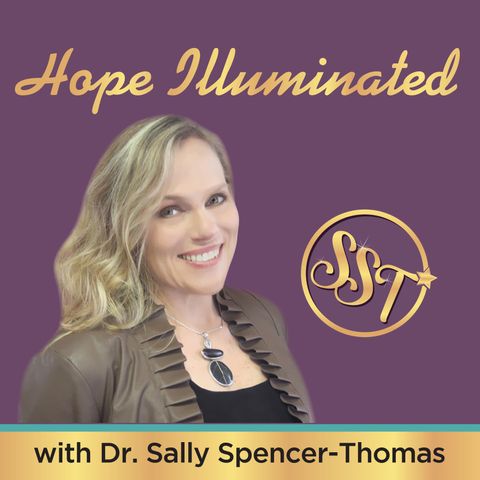The Role of Arts in Healing A Conversation with an Indigenous Trauma Survivor; Swil Kanim Episode 36

Descarga y escucha en cualquier lugar
Descarga tus episodios favoritos y disfrútalos, ¡dondequiera que estés! Regístrate o inicia sesión ahora para acceder a la escucha sin conexión.
Descripción
5 Ways the Arts Can Play a Role in Healing While you may know me as a psychologist, what you may not know is that I was also a Studio...
mostra másWhile you may know me as a psychologist, what you may not know is that I was also a Studio Art major in College, and the arts have always played a big role in my life. Over my career, I have continually tried to connect the dots between emotional recovery and the power of the arts, sometimes downplayed by researchers who claim there is a lack of evidence to show a connection. The American Journal of Public Health, however, published a meta review of the literature looking at the connection between healing and music engagement, visual arts therapy, movement-based creative expression and expressive writing and concluded that there are “clear indications that artistic engagement has significantly positive effects on health.” (p. 261)
The arts come in many forms — painting, drawing, photography, sculpture, music, dance, theater, poetry, creative writing and so much more — and throughout the ages, art has played a unique role in individual and community healing from trauma and suffering. Here are five ways art helps us transform our wounds into sources of power:
Connection — art brings people together and builds community and the connection we feel through our shared experience of the art helps us feel like we belong to something greater than ourselves.
Indirect communication — if I am suffering, but I cannot share with you directly what I am going through, I can talk about a piece of art I admire related to my suffering, and we can have a conversation about my experiences as a first step in expressing vulnerability.
Positive attraction — for most people the arts are compelling and intriguing, we lean in to experiencing them, even when (especially when?) the focus of the art is dark or taboo. We open a door and draw people in to explore the unspeakable through the language of the arts when otherwise they would run away.
Brain stimulation — when we communicate theory or statistics through our words, only a small part of our brain lights up. When we stimulate the brain through music and stories and poetry, we engage more areas of the brain and have a much richer experience, one that is more likely to be remembered later.
Transcending and transforming — there are some experiences that cannot be captured by words and the arts give us the tools to expand our ability to communicate to a more fuller picture and be changed by the experience of that expression in ways regular talk therapy can fall short.
In this interview, I speak with Swil Kanim — my “new friend in the canoe,” as he likes to say. I met Swil at the Four Directions Problem Gambling and Health Awareness Conference put on by the Evergreen Council on Problem Gambling in Washington State, and as I sat in the front row experiencing Swil’s gift of storytelling and musical performance, I was transfixed. You will be too. Swil is an indigenous man and a trauma survivor who credits his ability to overcome racism and suffering and become a student of honor to his discovery of the violin in the 4th grade. Join us as he shares his path of finding that healing was his responsibility and the way he would be true to his journey was through expressing himself musically.
About Swil Kanim (from www.swilkanim.com)
Swil Kanim.png
Swil Kanim, US Army Veteran, classically trained violinist, native storyteller and actor, is a member of the Lummi Nation.
Because of his unique ability to inspire audiences to express themselves honorably, Swil Kanim is a sought-after keynote speaker for conferences, workshops, school assemblies, and rehabilitation centers.
He travels extensively throughout the United States, enchanting audiences with his original composition music and native storytelling. His workshops, The Elements of Honor, are attended by people from all walks of life.
Swil Kanim considers himself and his music to be the product of a well supported public school music program. Music and the performance of music helped him to process the traumas associated with his early placement into the foster care system.
Swil Kanim's compositions incorporate classical influences as well as musical interpretations of his journey from depression and despair to spiritual and emotional freedom. The music and stories that emerge from his experiences have been transforming people's lives for decades. For more information on this and every episode go to https://www.sallyspencerthomas.com/hope-illuminated-podcast/36
Información
| Autor | MHNRN, LLC |
| Organización | MHNRN |
| Página web | - |
| Etiquetas |
Copyright 2024 - Spreaker Inc. an iHeartMedia Company

Comentarios